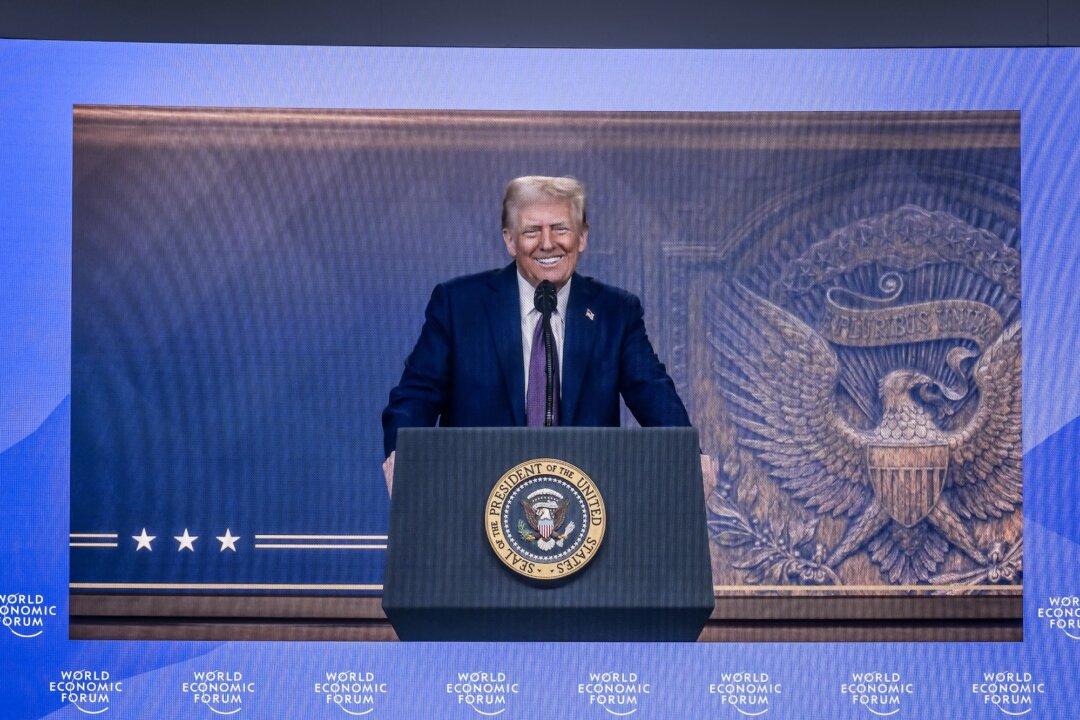President Donald Trump said Thursday that once oil prices drop, he will demand that the U.S. Federal Reserve lowers interest rates immediately, setting the stage for possible friction with policymakers at the U.S. central bank, who maintain their monetary-policy decisions should be based on inflation data not political pressure.
Trump made the remarks during a virtual speech on Jan. 23, during the World Economic Forum (WEF) in Davos, Switzerland, an annual meeting of global executives, bankers, and policymakers.





